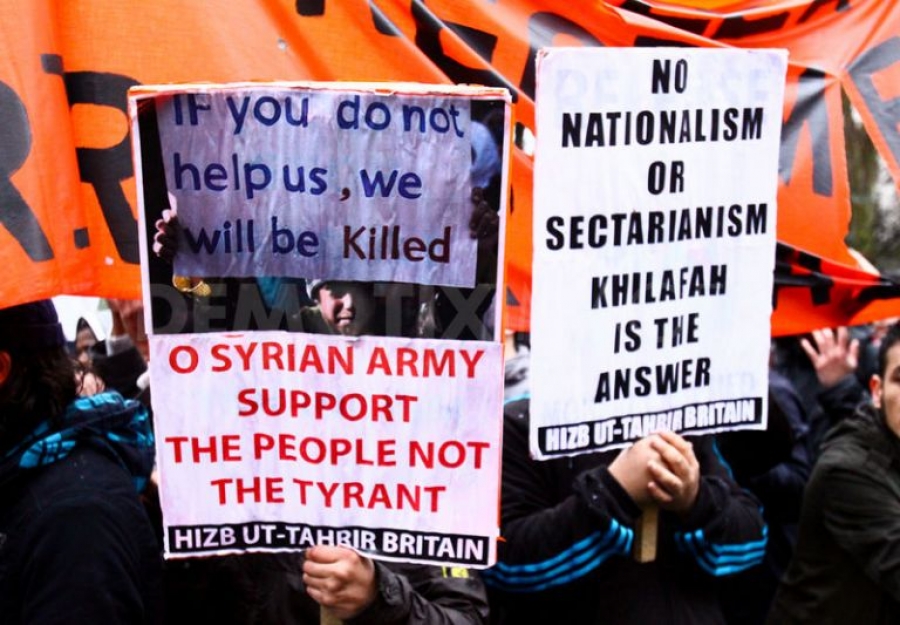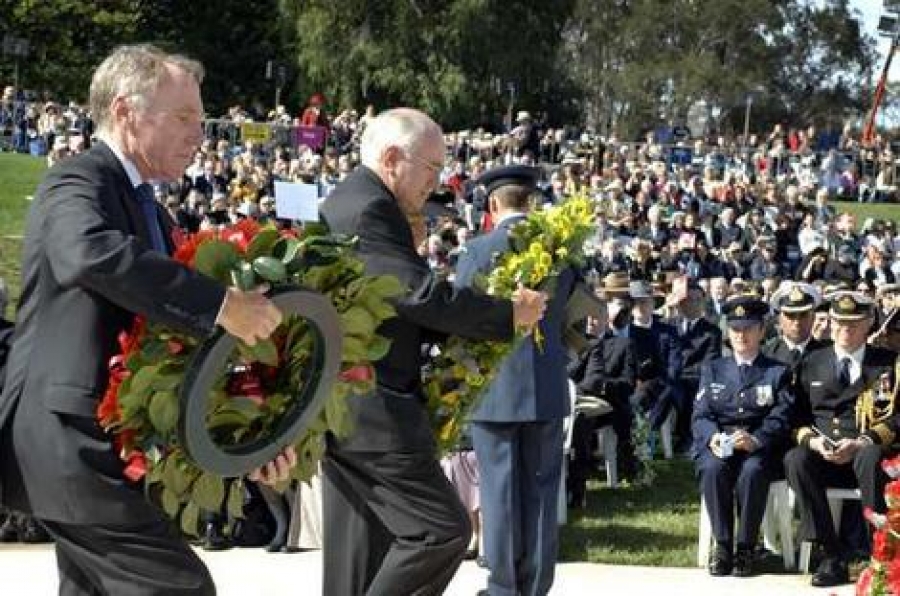Introduction
If a survey is conducted amongst a group of Muslims about the importance and obligation of da’wah to Islam, very few (if at all) would respond negatively. It is, however, a fact that most Muslims do not engage in da’wah to Islam. Amongst those who carry the da’wah, some do so habitually without any deep thinking, whilst others do it haphazardly. Arguably, only a small number of Muslims actually contemplate about this matter, whilst even fewer appreciate the necessary character, attitude and the disposition required to become a daa’ee.
This paper does not propose to be an all-encompassing manual for da’wah to Islam. Indeed, the scholarly materials in this field are vast, spanning over many centuries. The Islamic scholars have extensively contributed to this subject over the centuries. Instead, this paper seeks to explore:
1. the meaning of da’wah in today’s context;
2. the prerequisite disposition of a daa’ee in light of the Qur’an and the sunnah of the Prophet Muhammad صلى الله عليه وسلم, the beloved of Allah سبحانه وتعالى; and
3. the attitude of a daa’ee when engaging in da’wah.
PART 1: THE DA’WAH IN PRESENT CONTEXT
The shar’ee evidences
The term da’wah in essence means inviting others to the way of life ordained by Allah سبحانه وتعالى, i.e. to propagate Islam. There are a number of ahadith and ayat in the Qur’an which establish the obligation upon Muslims to propagate Islam and carry the da’wah of Islam. Although we should be familiar with some of these ayat, this paper will examine the same in some detail. Allah سبحانه وتعالى said,
وَلْتَكُنْ مِنْكُمْ أُمَّةٌ يَدْعُونَ إِلَى الْخَيْرِ وَيَأْمُرُونَ بِالْمَعْرُوفِ وَيَنْهَوْنَ عَنِ الْمُنْكَرِ ۚ وَأُولَٰئِكَ هُمُ الْمُفْلِحُونَ
“Let there arise out of you a group of people inviting to all that is good, enjoining Al-Ma’ruf and forbidding Al-Munkar. And it is they who are the successful”.
(Surah Ale-Imran: 104)
وَمَنْ أَحْسَنُ قَوْلًا مِمَّنْ دَعَا إِلَى اللَّهِ وَعَمِلَ صَالِحًا وَقَالَ إِنَّنِي مِنَ الْمُسْلِمِينَ
“And who is better in speech than he who says: “My Lord is Allah,” and then stands straight (acts upon Allah’s Order), and invites (men) to Allah and does righteous deeds, and says: “I am one of the Muslims.”
(Surah Fussilat: 33)
Imam Hasan al-Basri said regarding the above ayah of Surah Fussilat,
“This person is the beloved to Allah, the walee of Allah, the elite of Allah and is the most beloved to Him from amongst the people on earth. He answered the call of Allah and invites the people to the very same call he responded to. He works righteous deeds within his response (to Allah’s call) and declares ‘indeed I am from the Muslims…’ “
In this ayah, Allah سبحانه وتعالى informed us that amongst His servants, the best are those who convey the da’wah to Islam and invite men to Allah’s path. This is of the highest praise which should motivate and energise us to engage in da’wah, and in times of difficulty, should lighten our burden. Such daa’ee is the true follower of the prophets and messengers (alayhimus-salaam) as well as those who follow the messengers according to their rank in giving da’wah, in knowledge and excellence. And how pleasant will be the company of those who are mentioned in this ayah!
Moreover, Prophet Muhammad صلى الله عليه وسلم said, “Whoever directs someone to do good, he receives the same reward as the one who does the good” [reported by Muslim].
He صلى الله عليه وسلم also said,
“Islam began as something strange, and it will return as something strange, so give glad tidings to the strangers”. In another narration, it is reported that he صلى الله عليه وسلم was asked, “O Messenger of Allah, who are the strangers?” and he replied, “Those who are steadfast in righteousness at a time when people become corrupt” [reported by Muslim].
The above ahadith demonstrate that calling to the truth and refuting the false and corrupt Western ideas, values, ideals and principles, which prevail today amongst mankind, is regarded very highly by Prophet صلى الله عليه وسلم. These ahadith also tell us to remain firm on the truth and be righteous when society becomes engrossed in jahiliyyah, corruption and misguidance.
PART 2: THE PREREQUISITE ATTRIBUTES OF THE DAA’EE
Pay attention to your sincerity at all times
The very first hadith reported in Sahih al-Bukhari relates to this subject. Umar (ra) reported that he heard the Prophet صلى الله عليه وسلم say, “The reward of a deed depends upon the intention and every person will receive the reward according to what he has intended.”
The daa’ee must be sincere when he engages in da’wah. He must not show off his dedication, nor seek the praise nor the pleasure of anyone other than Allah’s. It is essential for the daa’ee to be sincere to Allah سبحانه وتعالى alone. Moreover, it is important that sincerity is espoused towards Allah alone and not to any particular madhab or scholar, as we do not worship any particular scholar. Yet, sincerity alone is insufficient because without knowledge, one can engage in haram acts whilst claiming that he is sincere! Thus, the daa’ee must continuously acquire knowledge of the deen.
Acquire knowledge of the deen of Allah
We should convey the da’wah with knowledge and clarity in our ideas and not be ignorant or simply use slogans to convey this noble da’wah.
قُلْ هَٰذِهِ سَبِيلِي أَدْعُو إِلَى اللَّهِ ۚ عَلَىٰ بَصِيرَةٍ أَنَا وَمَنِ اتَّبَعَنِي ۖ وَسُبْحَانَ اللَّهِ وَمَا أَنَا مِنَ الْمُشْرِكِينَ
“Say (O Muhammad): “This is my way; I invite unto Allah with sure knowledge, I and whosoever follows me (also must invite others to Allah) with sure knowledge”.
(Surah Yusuf: 108)
According to this ayah, knowledge in the deen is a prerequisite for engaging in da’wah. It is understandable that da’wah has many facets, angles and nuances and one may not easily be well versed in every aspect of da’wah. However, to be an effective daa’ee, one must be fully conversant with his particular subject area (at least). How can one call people to the deen of Allah سبحانه وتعالى without having acquired a certain level of knowledge? We cannot discharge this mighty obligation whilst we lack the relevant knowledge.
We should call people to this matter of Islam and resuming the Islamic way of life with a deeper understanding (baseerah) about what Allah سبحانه وتعالى and his Rasool صلى الله عليه وسلم have said about this matter. The daa’ee must be fully acquainted with the shar’ee evidences in relation to his da’wah. As the English say, ‘little knowledge is a dangerous thing’! In this case, it would be ‘dangerous’ to invite people to a call we have little knowledge of.
Careful adherence to the Qur’an and sunnah
The lifestyle of the daa’ee requires a careful adherence to Allah’s kitab and his Prophet’s sunnah. The daa’ee must make the Qur’an a part of his life by regularly reciting it, reflecting over the meanings of these powerful verses and acting upon the sunnah of the Prophet صلى الله عليه وسلم. Irrespective of the daa’ee’s wider reading of Islamic books and materials, the Qur’an is the source of all knowledge, as further explained by Muhammad صلى الله عليه وسلم. Therefore, a strong relationship with and familiarity of the Qur’an is essential for the daa’ee. Allah سبحانه وتعالى said,
كِتَابٌ أَنْزَلْنَاهُ إِلَيْكَ مُبَارَكٌ لِيَدَّبَّرُوا آيَاتِهِ وَلِيَتَذَكَّرَ أُولُو الْأَلْبَابِ
“(This is) a Book (the Qur’an) which We have sent down to you, full of blessings that they may ponder over its Verses, and that men of understanding may remember.”
(Surah Saad: 29)
The daa’ee must be from amongst those who Allah calls the “men of understanding”. These are people whom Allah has granted the ability to distinguish the haaq from the baatil and guidance from misguidance. This quality can only be acquired through contemplation of the Qur’an.
Be a good example for others
It goes without saying that the daa’ee must live by his own da’wah and must necessarily be an exemplary model of what he is calling people to. This essentially means that he should not be someone who forbids a munkar yet engages in the same himself! That would indeed be an unfortunate character. Although we all make mistakes, the subject of discussion here is not a slippage in action; rather a consistent disregard for munkar. The sincere daa’ee calls people to the truth, acts upon it and hastens towards the khair and abstains from the munkar which he forbids others. Thus, the daa’ee calls people to Islam through his words and deeds and there should be no discrepancy in these two elements. Allah سبحانه وتعالى warns us with a stern message,
يَا أَيُّهَا الَّذِينَ آمَنُوا لِمَ تَقُولُونَ مَا لَا تَفْعَلُونَ
كَبُرَ مَقْتًا عِنْدَ اللَّهِ أَنْ تَقُولُوا مَا لَا تَفْعَلُونَ
“O you who believe! Why do you say that which you do not do? Most hateful it is with Allah that you say that which you do not do.”
(Surah As-Saff: 2-3)
Similarly Allah gives the glad tidings to the daa’ee,
وَمَنْ أَحْسَنُ قَوْلًا مِمَّنْ دَعَا إِلَى اللَّهِ وَعَمِلَ صَالِحًا وَقَالَ إِنَّنِي مِنَ الْمُسْلِمِينَ
“And who is better in speech than he who says: “My Lord is Allah,” and then stands straight (acts upon Allah’s Order), and invites (men) to Allah and does righteous deeds, and says: “I am one of the Muslims.”
(Surah Fussilat: 33)
The above ayah has four parts to it. Firstly the daa’ee affirms his imaan in Allah سبحانه وتعالى, secondly, he obeys Allah’s orders, thirdly, he invites people to the deen and fourthly, he does righteous good deeds. Thus, the daa’ee is best in speech if he abides by the shari’ah of Allah سبحانه وتعالى and invites people to the same. Only then will he influence people with his da’wah and from which people will derive any benefit. They will then respect and love the daa’ee due to his righteous conduct and character. The above is evident from the life of Muhammad صلى الله عليه وسلم, as his enemies used to admire and respect his person, although the same people opposed his call to Islam.
In contrast, the daa’ee who does not live by his da’wah, the effect of his work will be negligible and minimum. He will have little or no impact upon the community in which he lives. At best, he will simply please and convince his crowd that he is doing good work! At worst, such daa’ee angers Allah سبحانه وتعالى and the people inevitably turn away from him. We seek refuge in Allah from such undesirable characteristics.
Have taqwa and control one’s inner demons!
If taqwa should be a core component of every Muslim, what then is the position of taqwa for the daa’ee? In fact, the daa’ee must be firmly rooted in taqwa in the face of affliction, hardship, ordeal and mockery from the enemies of Islam. The daa’ee must remind himself about why he is engaged in the da’wah and not allow these obstacles to derail him from his mission. The daa’ee engages in da’wah to fulfil the command of his Lord, Allah سبحانه وتعالى. So he must embody taqwa in times of ease and hardship, just as Muhammad صلى الله عليه وسلم and his companions had endured the sufferings with taqwa and tawaqqul.
Embedded in taqwa, the daa’ee must differentiate between humility and shyness, as the two are not the same. An important part of the job description of the daa’ee is that he is able to articulate the message of Islam, enjoin the ma’ruf and forbid the munkar. The daa’ee should not fear, nor be ashamed of mentioning that he is a Muslim and that he is an Islamic activist, a daa’ee.
PART 3: THE ATTITUDE OF THE DAA’EE IN CONVEYING ISLAM
Be compassionate and demonstrate kindness towards your audience
If we examine the characters of Allah’s prophets and messengers, we can identify some common attributes in all of them. When Muhammad صلى الله عليه وسلم engaged in da’wah, he صلى الله عليه وسلم was polite, gentle, compassionate and patient towards the people he gave da’wah to, except that he was at times harsh towards the arch enemies of Islam such as Abu Jahal, Abu Lahab and Walid bin Al-Walid Al-Mughairah. His da’wah was characterised by perseverance and he was not in a haste to achieve results.
In the vast majority of our day to day engagement with people, we do not deal with the likes of Abu Jahal or Abu Lahab. The common people who are harsh or rude towards us in the da’wah behave in that manner because of ignorance in most cases, although there may be some exceptions. Allah ordered Muhammad صلى الله عليه وسلم to be gentle to his audience. He سبحانه وتعالى said,
فَبِمَا رَحْمَةٍ مِنَ اللَّهِ لِنْتَ لَهُمْ ۖ وَلَوْ كُنْتَ فَظًّا غَلِيظَ الْقَلْبِ لَانْفَضُّوا مِنْ حَوْلِكَ ۖ فَاعْفُ عَنْهُمْ وَاسْتَغْفِرْ لَهُمْ وَشَاوِرْهُمْ فِي الْأَمْرِ
“And by the Mercy of Allah, you dealt with them gently. And had you been severe and harsh-hearted, they would have broken away from about you; so pass over (their faults), and ask (Allah’s) Forgiveness for them”
(Surah Ale-Imran: 159)
In this ayah, Allah سبحانه وتعالى is warning the daa’ee against being harsh towards people, as harshness drives people away from the deen. The sunnah of the Prophet صلى الله عليه وسلم demonstrates that the only way to win hearts and minds is through patience, politeness, compassion and good speech, so that people listen to the daa’ee – not run away from him! Prophet صلى الله عليه وسلم said,
“Whenever gentleness is in something, it does nothing but beautify it, and when it is removed from something, it does nothing but disfigure it”. [Sahih Muslim]
He صلى الله عليه وسلم also said, “The one who is deprived of gentleness, he is deprived of all good”. [Sahih Muslim]
The only possible exception to the above rule is that when the daa’ee invites those in positions of authority and in response they become stubborn and oppressive, then in such situations a firm and stern approach is justifiable. Allah سبحانه وتعالى said,
مُحَمَّدٌ رَسُولُ اللَّهِ ۚ وَالَّذِينَ مَعَهُ أَشِدَّاءُ عَلَى الْكُفَّارِ رُحَمَاءُ بَيْنَهُمْ
“Muhammad is the Messenger of Allah, and those who are with him are severe against disbelievers, and merciful among themselves.”
(Surah Al-Fath: 29)
Therefore, the daa’ee must be compassionate and gentle in his da’wah to the common people.
Appropriate use of wisdom when giving da’wah
When Muhammad صلى الله عليه وسلم was commanded to convey the message of Islam, Allah سبحانه وتعالى ordered him صلى الله عليه وسلم to rise and warn mankind. He سبحانه وتعالى said,
يَا أَيُّهَا الْمُدَّثِّرُ
قُمْ فَأَنْذِرْ
وَرَبَّكَ فَكَبِّرْ
“O you wrapped (in garments)! Arise and warn! And your Lord (Allah) magnify!”
(Surah Al-Muddathir: 1-3)
ادْعُ إِلَىٰ سَبِيلِ رَبِّكَ بِالْحِكْمَةِ وَالْمَوْعِظَةِ الْحَسَنَةِ ۖ وَجَادِلْهُمْ بِالَّتِي هِيَ أَحْسَنُ
“Invite (mankind) to the Way of your Lord (i.e. Islam) with wisdom and fair preaching, and argue with them in a way that is better”.
(Surah An-Nahl: 125)
Allah ordained his Prophet صلى الله عليه وسلم to convey this noble message with wisdom, an order that also applies to the Ummah today. The daa’ee therefore must convey the da’wah of Islam with wisdom.
What is wisdom and what are its manifestations? Wisdom requires the daa’ee to explain the message in a jargon-free, plain language such that the people can relate to him. Wisdom is not to compromise or twist the pure message of Islam to make it palatable to Western taste, nor to make it music to the ears of the critics of Islam! Rather, according to some of the mufassireen, using wisdom means that the daa’ee should convey by referring to the Qur’an and sunnah of Muhammad صلى الله عليه وسلم. The prophetic method contains true wisdom, which is unparalleled.
Appreciate ikhtilaaf (differences of opinion) and do not be partisan
Ever since the advent of Islam, differences of opinions have existed, even amongst the companions of the Prophet صلى الله عليه وسلم. Ideally, no differences of opinions should exist because after all, we follow the Qur’an and the sunnah. However, the reality is far more complicated. Allah سبحانه وتعالى said,
فَإِنْ تَنَازَعْتُمْ فِي شَيْءٍ فَرُدُّوهُ إِلَى اللَّهِ وَالرَّسُولِ إِنْ كُنْتُمْ تُؤْمِنُونَ بِاللَّهِ وَالْيَوْمِ الْآخِرِ ۚ ذَٰلِكَ خَيْرٌ وَأَحْسَنُ تَأْوِيلًا
“(And) if you differ in anything amongst yourselves, refer it to Allah and His Messenger, if you believe in Allah and in the Last Day. That is better and more suitable for final determination”.
(Surah An-Nisa’: 59)
The above ayah tells the believers what to do when they differ in any given matter. The matter must be referred back to the shari’ah for adjudication. It is natural for the daa’ee to have deeply held convictions and upon which he acts. However, such convictions should not be held blindly with an emotional allegiance to any person or entity. As Muslims, we follow the haaq irrespective of who declares it. It is not the person but the message we need to focus upon.
In this context, the daa’ee should be prepared to follow the great ulema whether past or present, from whichever movement or school of thought an alim may emanate. Similarly, the daa’ee should be prepared to abandon his views and convictions if it becomes clear that there is a stronger opinion and about which he now has clear proof. This principle applies especially in matters of ijtihaad that are not kata’i and which always bear the possibility of error and uncertainty. There is no room for partisanship in Islam.
Today, many Muslims around the globe call for the return of the Khilafah whilst others work for pragmatic solutions. Given the differences in emphasis and in understanding of priority, it is necessary for the daa’ee (of whichever persuasion) to cooperate in the da’wah rather than exhibit hostility and hatred towards others. The daa’ee must bear in mind that these differences are principally related to matters of ijtihaad.
The shari’ah permits the existence of multiple groups and parties so long as they are based on the principles of Islam and they call for Islam alone and abide by the shari’ah. The multiplicity of such groups necessarily means that there will be ikhtilaaf amongst them. Sheikh Ahmad Mahmoud stated,
“In the event that more than one Islamic group exists, they are obliged to adhere to the shar’ee rules that explain adaab al-akhtilaaf (the etiquette of disagreement). It is not allowed for a Muslim to accuse another Muslim of kufr or transgression simply because he disagreed with him regarding an opinion, as long as this disagreement was within the confines of legitimate ijtihaad. Any evidence that has a shar’ee evidence, strong or weak, or if it has a shubhat ad-daleel, is a legitimate opinion. It is not allowed to discredit the opinion of the one who espouses it”. [1]
Similarly, the founder of Hizb ut-Tahrir, the eminent Sheikh Taqiuddin an-Nabhani stated,
“Therefore, the da’wah carriers should consider their understanding of the rules as correct, with the possibility that they may be wrong, while the understanding of other people wrong, with the possibility that they may be correct. This is in order to proceed with the da’wah for Islam and its rules according to their understanding and derivation of them, trying to change the opinions of others which they consider wrong, but could possibly be correct. It is totally incorrect for the da’wah carriers to view their understanding as if it is the opinion of Islam, rather they have to present their opinion as an Islamic opinion. The mujtahids who established the schools of Fiqh (madhabs) used to consider their deduction of the rules as correct, accepting the possibility of it being wrong.” [2]
Thus, it is evident that the ulema in the true spirit of Islam promoted humility and harmony. The daa’ee would inevitably face different opinions on any given issue amongst the ulema and/or movements. Inevitably, some opinions would be stronger than others; yet it must not generate hostility and ill-feelings. The daa’ee must learn to accommodate and respect ikhtilaaf. The da’wah requires an atmosphere of unity and brotherhood based upon imaan. Allah سبحانه وتعالى said in the noble Qur’an,
وَاعْتَصِمُوا بِحَبْلِ اللَّهِ جَمِيعًا وَلَا تَفَرَّقُوا ۚ وَاذْكُرُوا نِعْمَتَ اللَّهِ عَلَيْكُمْ إِذْ كُنْتُمْ أَعْدَاءً فَأَلَّفَ بَيْنَ قُلُوبِكُمْ فَأَصْبَحْتُمْ بِنِعْمَتِهِ إِخْوَانًا وَكُنْتُمْ عَلَىٰ شَفَا حُفْرَةٍ مِنَ النَّارِ فَأَنْقَذَكُمْ مِنْهَا ۗ كَذَٰلِكَ يُبَيِّنُ اللَّهُ لَكُمْ آيَاتِهِ لَعَلَّكُمْ تَهْتَدُونَ
“And hold fast, all of you together, to the Rope of Allah (i.e. this Qur’an), and be not divided among yourselves, and remember Allah’s Favour on you, for you were enemies one to another but He joined your hearts together, so that, by His Grace, you became brethren (in Islamic Faith), and you were on the brink of a pit of Fire, and He saved you from it.”
(Surah Ale-Imran: 103)
Therefore, the daa’ee must be conscious of the need to maintain brotherhood, respect, humility the etiquette of disagreement when he engages in da’wah. Only then will he succeed in earning the respect of others. Aggressive debates can only burn bridges and achieve very limited results, if at all.
Conclusion
It is important to appreciate that every journey requires adequate preparation. The journey upon the path of Allah سبحانه وتعالى cannot be embarked upon without a deeper understanding of the qualities the daa’ee must possess. Thus, the preparation required by the daa’ee should not be underestimated. It is commonly said, ‘if you fail to prepare, then prepare to fail’. The work for this noble da’wah contains many challenges and thorny paths, which only the well prepared daa’ee can navigate safely to the destination, the re-establishment of the deen of Allah on this earth, by the Will of Allah سبحانه وتعالى. We pray that Allah سبحانه وتعالى brings unity in the hearts of the believers, unites the disparate lands of Muslims under the shade of Islam and gives victory to His true servants.
Notes
[1] Sheikh Ahmad Mahmoud, The Da’wah to Islam and The Method to Re-establish The Islamic State, Revival Publications, India, (2011), pp-15/16
[2] Sheikh Taqiuddin an-Nabhani, Mafahim Hizb ut-Tahrir (Concepts of Hizb ut-Tahrir), Khilafah Publications, UK, (2002), p-65
![]()















